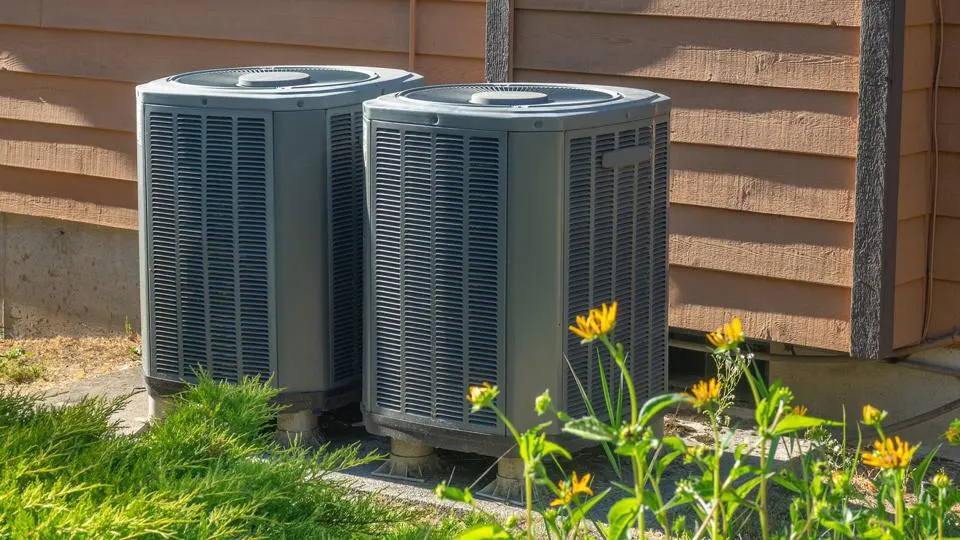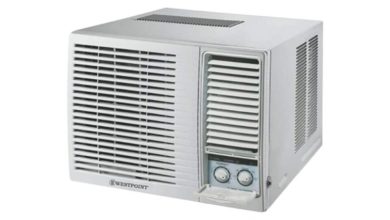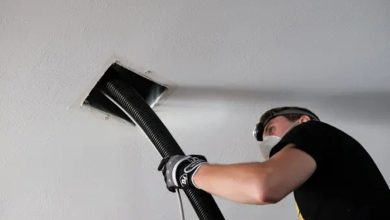HVAC System: Your Guide to Comfortable Indoor Living

In today’s fast-paced world, comfort and convenience have become necessities, especially when it comes to our living spaces. The HVAC system, which stands for Heating, Ventilation, and Air Conditioning, plays a crucial role in providing us with optimal indoor living conditions. From keeping us warm during chilly winters to cooling us down on scorching summer days, HVAC systems are an integral part of modern living.
What is an HVAC System?
Understanding the Acronym
The term “HVAC” stands for Heating, Ventilation, and Air Conditioning. It refers to the technology that enables us to control the indoor temperature, humidity, and air quality of residential and commercial spaces.
Components of an HVAC System
An HVAC system consists of several key components, including the furnace or heat pump (for heating), the air conditioner (for cooling), ductwork (for air distribution), vents, thermostat, and air filters.
How Does an HVAC System Work?
Heating Process
During the heating process, the HVAC system uses a furnace or a heat pump to generate warmth. The warm air is then distributed through the ducts and released through vents into different rooms.
Ventilation Process
Ventilation is a crucial aspect of the HVAC system. It involves the exchange of indoor and outdoor air, providing fresh air and improving indoor air quality. Proper ventilation helps remove pollutants, allergens, and odors from the indoor environment.
Air Conditioning Process
The air conditioning process involves the use of an air conditioner to cool the indoor air. The system extracts heat and moisture from the air, leaving behind cool, refreshing air that is distributed throughout the building.
Importance of HVAC Systems
Comfort and Well-Being
HVAC systems are essential for maintaining a comfortable and conducive indoor environment. They ensure that occupants can live and work comfortably regardless of the external weather conditions.
Energy Efficiency
Modern HVAC systems are designed with energy efficiency in mind. They help reduce energy consumption, leading to lower utility bills and a reduced carbon footprint.
Indoor Air Quality
Properly functioning HVAC systems play a significant role in maintaining good indoor air quality. They filter out pollutants, dust, and allergens, providing a healthier living space for occupants.
Types of HVAC Systems
Split HVAC Systems
Split HVAC systems consist of two main units: an outdoor condenser and an indoor air handler. They are suitable for homes with existing ductwork and provide both heating and cooling capabilities.
Packaged HVAC Systems
Packaged HVAC systems house all the components in a single unit, making them suitable for small spaces or buildings without existing ductwork. They can be placed on the rooftop or outside the building.
Ductless HVAC Systems
Ductless HVAC systems, also known as mini-split systems, do not require ductwork. They consist of an outdoor condenser unit and one or more indoor air handlers, providing zoned heating and cooling options.
Choosing the Right HVAC System for Your Needs
Considering the Climate
The climate in your region plays a crucial role in determining the type of HVAC system you need. For colder climates, a reliable heating system is a priority, while in hotter climates, efficient cooling is essential.
Sizing the System Correctly
Proper sizing is critical to the efficient operation of an HVAC system. A system that is too small will struggle to meet the demands, while an oversized system will cycle on and off frequently, wasting energy.
Energy Efficiency Ratings
When choosing an HVAC system, look for energy-efficient models with high SEER (Seasonal Energy Efficiency Ratio) and AFUE (Annual Fuel Utilization Efficiency) ratings. These systems will help you save on energy costs over time.
HVAC Maintenance and Tips for Optimal Performance
Regular Filter Changes
Regularly changing the air filters is essential for the smooth functioning of your HVAC system. Clogged filters reduce airflow and strain the system, leading to decreased efficiency and potential breakdowns.
Clearing the Vents and Ducts
Blocked vents and ducts can hinder airflow and affect the overall performance of your HVAC system. Ensure that the vents and ducts are clean and free from obstructions.
Scheduling Professional Maintenance
Routine maintenance by HVAC professionals is crucial to keeping your system in top condition. Professional technicians can identify and address potential issues before they turn into significant problems.
Common HVAC Problems and Troubleshooting
Uneven Cooling or Heating
Uneven temperature distribution is a common problem in HVAC systems. This issue could be due to blocked vents, leaky ducts, or thermostat malfunctions.
Unusual Noises
Unusual noises coming from your HVAC system may indicate a problem with the motor, fan, or other components. It’s essential to address these noises promptly to prevent further damage.
HVAC System Leaks
Leaks in the HVAC system can lead to refrigerant loss or water damage. If you notice any leaks, it’s best to have them fixed immediately to prevent further issues.
The Future of HVAC Systems
Smart HVAC Technology
The future of HVAC systems lies in smart technology. Smart thermostats and advanced control systems allow users to optimize energy consumption and create personalized comfort settings.
Increased Energy Efficiency
As environmental concerns grow, HVAC systems will continue to focus on improving energy efficiency, reducing greenhouse gas emissions, and adopting eco-friendly refrigerants.
Integration with Renewable Energy Sources
In the future, HVAC systems may integrate with renewable energy sources such as solar power, further reducing dependence on non-renewable energy and promoting sustainability.
Conclusion
HVAC systems have revolutionized the way we experience indoor living, providing comfort, energy efficiency, and improved indoor air quality. Whether you live in a scorching desert or a freezing tundra, HVAC systems have got you covered. Regular maintenance and keeping up with technological advancements will ensure that your HVAC system remains a reliable and efficient companion throughout the years.




